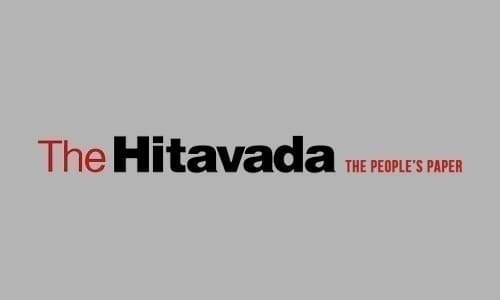SHAPING GEOPOLITICS
| Date :30-May-2023 |

BY D C PATHAK
IN RECENT years the international scene has been conditioned by new geopolitical trends that were affecting all regions particularly West Asia, IndoPacific and Eurasia. India now a major power influencing global events, had particular stakes in these parts of the world. The post-Cold War years in which the US-led unipolar order prevailed for quite some time, the fall-out of the ‘war on terror’ that essentially turned out to be prolonged combat between the US-led West and the Islamic radicals and the reappearance more recently, of the polarisation between US on one hand and the ChinaRussia axis, on the other - following the Ukraine-Russia military confrontation - have been the major developments that are shaping the current geopolitics. India is required to keep close track of the changing alignments within the socalled Islamic world - more so in West Asia. Independent India maintained cordial relations with the Arab world particularly the Gulf countries regardless of the fact that Indo-Pak relations had turned sour on multiple counts. We have to have a deep understanding of the cross currents in West Asia in order to maintain and strengthen India’s friendships in the region in the future.
From India’s point of view Saudi Arabia, Egypt and Iran are the three Muslim countries that hold the key to West Asia’s stability and friendly disposition towards this nation. It is a matter of deep satisfaction for the country that Ajit Doval, India’s National Security Advisor has directly reached out to Iran and Saudi Arabia and struck an equation with them in a manner that allows India to build bilateral economic relations with them and also make a contribution as a common friend, to the alleviation of political and ideological conflict existing between them for a long time. It is to be noted that Doval has established an ‘NSA grid’ with all major powers - in today’s world, international relations are steered at that level for the simple reason that the nation’s security and economic concerns are best evaluated there. Foreign policy by definition is the product of these twin concerns and it is no surprise therefore that implementation of the policy framework defined largely at the level of NSAs is becoming a major function of diplomacy.
The Biden administration has been circumspect about supporting Islamic fundamentalist regimes. There is a realisation in the Saudi camp that violence in the name of religion by invoking ‘Jihad’, can not be upheld in present times. Diplomacy’s inputs for policy formulation remain of course important like before. The three pivotal countries of the West Asia-North Africa ( WANA) region mentioned above, are the principal witnesses of the cross-currents flowing through the Islamic world for some time now and it is important for India to embrace them in friendship. India’s strategy of developing bilateral friendships with Israel, Iran and the UAE-Saudi Arabia duo, helped to bridge the faith-based gulfs that had been the hallmark ofWest Asia’s history. The rapprochement between Iran and Saudi Arabia worked out by China should be seen against the backdrop of these twoWest Asian countries being the largest trading partners of China, the shared hostility of Iran and China towards the US and the willingness of Saudi Arabia to reduce the arc of confrontation facing the country because of its past political alignments. It is good to see India handling the Muslim world in general and West Asia in particular with great finesse, strategic merit and consideration of India's own security and economic interests. Without giving any quarters to Pakistan, India has enhanced its outreach to Islamic countries and developed strategic friendships in the Gulf and elsewhere steering clear of the faith-based or political divides among them. Ajit Doval, India’s NSA, has played a leading role in steering these foreign policy moves. In a brilliant initiative meant to counter the adverse effects of the reinstallation of Kabul Emirate under the Taliban, he hosted a meeting of his counterparts from Russia, CARs and Iran-Pakistan and China though invited did not respond as was anticipated - in November 2021, where the call for an inclusive and democratic rule in Afghanistan was upheld and terrorism and radicalisation were firmly opposed.
The NSA has established a strong grid with his counterparts from major powers including the US and Russia and strengthened the goodwill of the international community for India. The friendly environment has further facilitated Prime Minister Modi’s rise as a wise counsel on the global stage. Doval recently visited Saudi Arabia and Iran to cement India’s friendship with these important nodal countries of the Islamic world -which had their own compulsions about maintaining alignments within that world. Also, India’s moves to keep strategic partnership with the US on a special footing without letting this come in the way of close bonds with Russia, have proved extremely fruitful and kept India on top of the situation as far as international relations were concerned. ( The writer is a former Director of the Intelligence Bureau.)